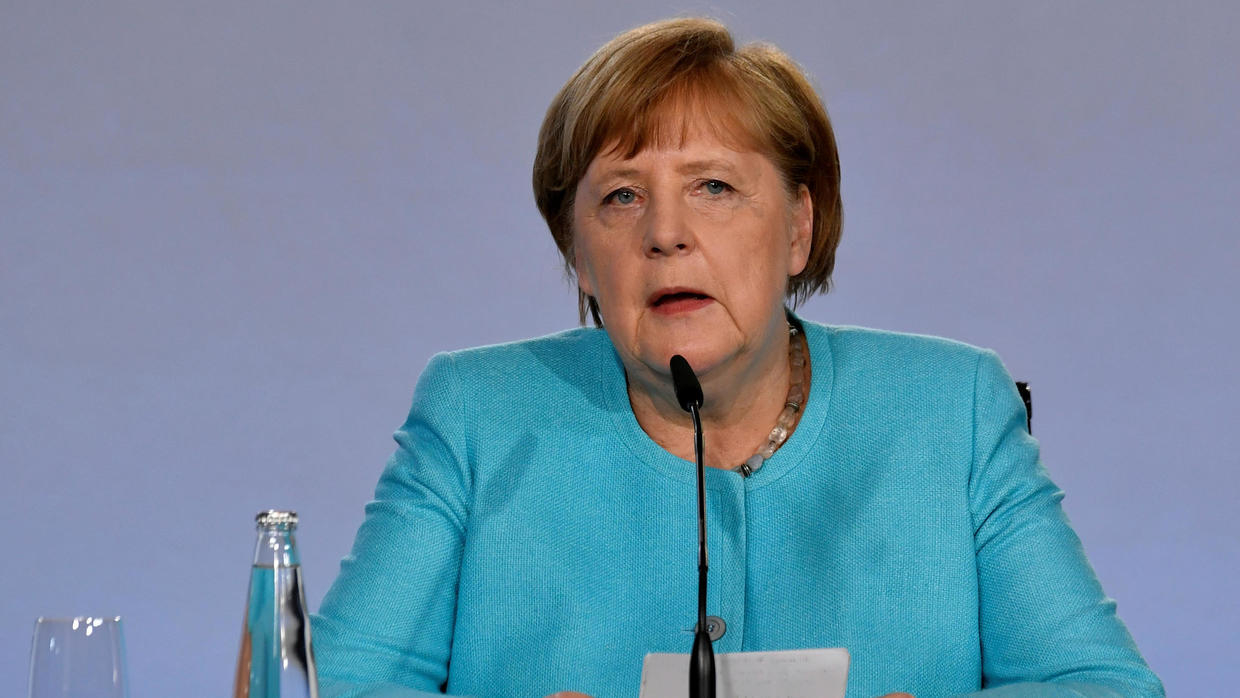Germany unveils 130 billion euro stimulus package to kickstart virus-hit economy

Issued on: 04/06/2020 – 01:55
Germany will plough 130 billion euros ($146 billion) into a stimulus package to kick-start an economy severely hit by the coronavirus pandemic, Chancellor Angela Merkel said Wednesday.
Advertising
Read more
Under the wide-ranging measures outlined in a 15-page document, value-added tax will be temporarily slashed, families will receive 300 euros for each child, while those who purchase electric cars will see a government rebate doubled to 6,000 euros.
"The size of the package will reach 130 billion euros for 2020 to 2021, 120 billion of which will be borne by the federal government," said Merkel.
"We have an economic stimulus package, a package for the future and in addition, we're now dealing with our responsibility for Europe and the international dimension."
Noting that millions of employees in Germany have been put on shorter working hours, Merkel said that "shows how fragile the whole thing is, and why we must succeed in giving the economy a push so that jobs can be secured."
"We need to get out of this crisis with an oomph," said Finance Minister Olaf Scholz.
The fresh stimulus comes on top of a massive 1.1 trillion euro rescue package already agreed in March, comprising loan guarantees, subsidies and a beefed-up shorter-hours programme to avoid job cuts.
To fund the unprecedented package, parliament had approved new borrowing, marking a sea change in German economic policy, upending a financial-crisis-era constitutional rule drastically limiting budget deficits.
'Find its feet'
With borders slamming shut, employees kept home, and shops and restaurants forced to close to halt transmission of the coronavirus, Germany is headed for the worst recession in its post-war history.
Disruptions to trade and travel have also weighed on the export powerhouse.
Latest data released earlier Wednesday showed that the unemployment rate rose to 6.3 percent in May, the equivalent of some 2.8 million people, from 5.8 percent in April.
With new infections sharply dropping, Europe's biggest economy began easing social restrictions in early May, allowing shops to reopen while restaurants and tourist businesses are taking the first tentative steps.
Factories too are restarting their production lines.
Merkel has said the support programme will help "the economy to find its feet and grow again".
To boost consumer spending, VAT will be cut from 19 to 16 percent from July 1 to December 31 this year.
But a controversial plan for a cash-for-clunkers scheme that alRead More – Source
[contf]
[contfnew]

france24
[contfnewc]
[contfnewc]

